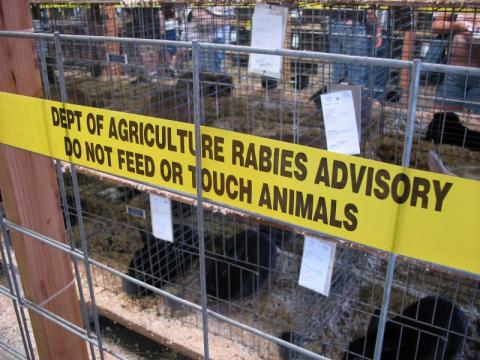Rabies – it can be a fatal bite

Rabies is a preventable disease, but it kills up to 55,000 people each year. Therefore on World Rabies Day, 28 September 2011, the Public Health Agency (PHA) wants to raise awareness and understanding about the importance of seeking medical advice on whether the country or countries people are visiting require vaccination against this serious disease.
Rabies is transmitted to humans mainly by the bite of an infected animal (commonly a dog, but can be spread by other mammals including cats and monkeys). It can also be spread through a scratch, or by the animal licking a cut or a wound and saliva from the infected animal getting into the eyes, mouth or nose. It is impossible to tell just by looking at an animal if they are infected, therefore while visiting other countries it is best to avoid touching animals, especially strays.
Dr Michael Devine, Consultant in Health Protection, PHA, said: “Rabies is an acute viral infection which is almost certainly fatal. The infection causes inflammation of the brain and symptoms usually start 2–8 weeks after exposure. Early symptoms include headache, fever and anxiety; progressing to acute pain, violent uncontrolled movements, spasms of the swallowing muscles making it impossible to drink and respiratory failure.
“People may be used to thinking about rabies when they go to more exotic locations like Asia and Africa, but it can also be present closer to home, such as in some eastern European countries. So it is always best to play it safe and avoid animals, especially strays.”
Dr Devine continued: “If you are bitten by an animal while abroad it is important to clean the wound thoroughly with soap and water and seek medical attention immediately, even if you have been previously immunised, as treatment must be given to attempt to reduce the risk of developing the disease – treatment works best if initiated as soon as possible. Rabies vaccination is very effective – almost 100%. Booster doses may be required after one year and then every 2–5 years for those at continued risk.”
Contact PHA Press Office on 028 9031 1611
